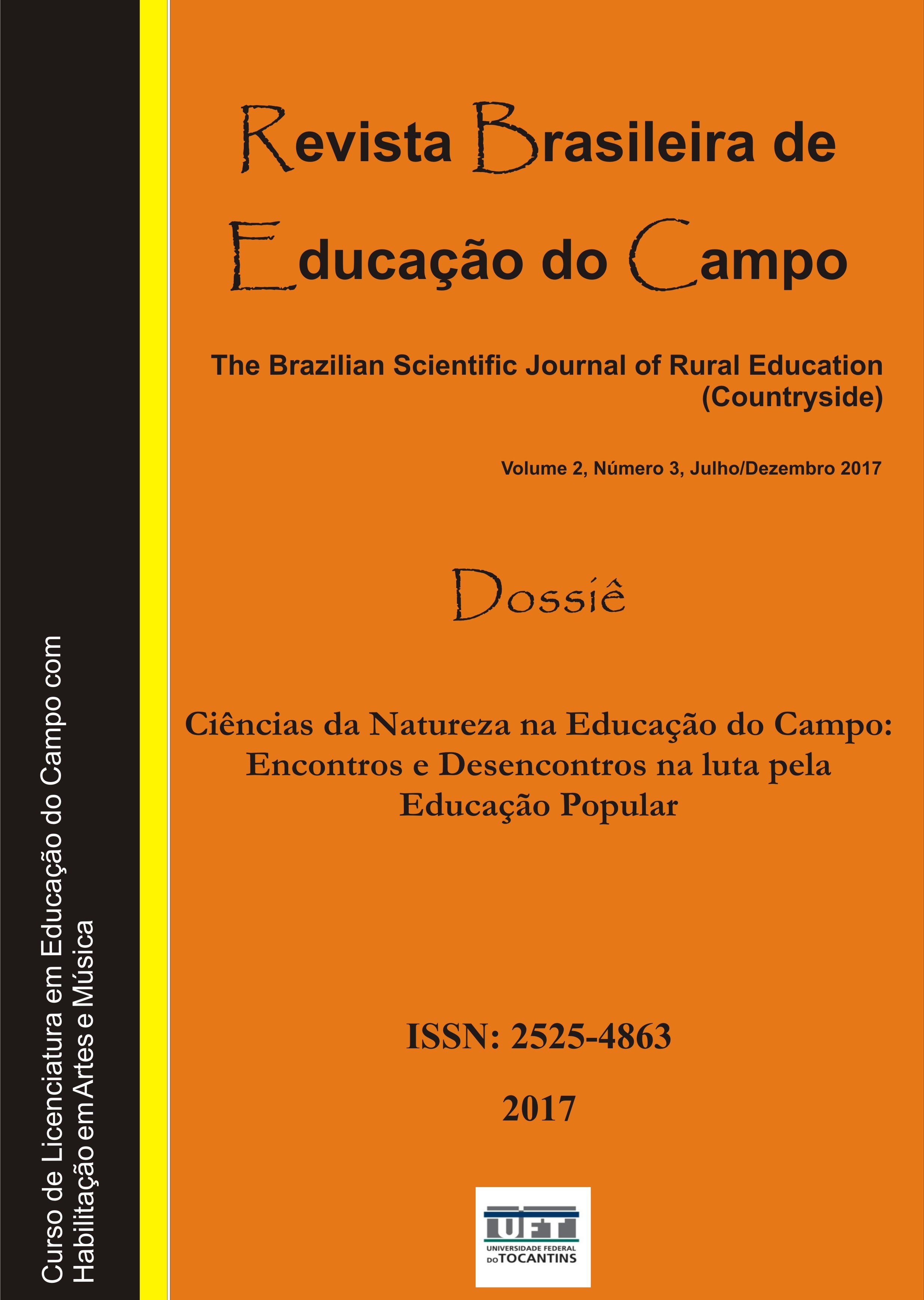Sustainability and the Rural Education Course: is such approach possible?
DOI :
https://doi.org/10.20873/uft.2525-4863.2017v2n3p921Résumé
ABSTRACT: The Licentiate Course in Rural Education with a degree in Nature Sciences from the Federal University of Goiás - Region Catalão was created in 2014 and since then has been facing challenges for its consolidation. Besides the implementation of a new curriculum design and the training of teacher trainers who also approach field issues, we notice from our daily practice the need to establish anchorage in concepts and theories that actually act for the benefit of the project itself in training for the field. It is in this context, from the absence of anchorages, that we carry out a reflexive study about the concept of sustainability, seeking both the understanding about it and the evaluation of the possibilities of its use as a guide to the practice or theoretical-methodological inspiration. The result of this study indicates that the concept of sustainability is more complex than it seems and requires greater understanding, however, we consider that it derives from it possibilities that should be admitted as the assumption of another role for education in the dimension of sustainable development.
Téléchargements
Références
Altvater, E. (1995). O preço da riqueza: pilhagem ambiental e a nova (des)ordem mundial. São Paulo: UNESP.
Alves, M., & Faleiro, W. (2015). A imaginação sociológica e a produção de saberes em comunidades rurais da região de Catalão-GO. Cadernos CIMEAC, 5(1), 91-106. Doi: https://doi.org/10.18554/cimeac.v5i1.1474
Baroni, M. (1992). Ambiguidade e deficiências do conceito de desenvolvimento sustentável. Rev. Adm. Empr. 32(2), 14-24.
Benfica, G. (2008). Sustentabilidade e Educação. Salvador: Seara.
Carletto, M. R., Linsingen, I., & Delizoicov, D. (2006). Contribuições a uma educação para a sustentabilidade. In I Congresso Ibero-Americano de Ciência, Tecnologia, Sociedad y Inovación CTS+I, Mesa 16, Palácio de Minería.
Costa, E. R., Alves, M. Z., & Faleiro, W. A. (2015). Interdisciplinaridade no Curso de Educação do Campo: O Caso da UFG Catalão. Enciclopédia Biosfera, 11(20).
Crespo, S. (2003). Uma visão sobre a evolução da consciência ambiental no Brasil nos anos 1990. In Trigueiro, A. (Org.). Meio ambiente no século 21: 21 especialistas falam da questão ambiental nas suas áreas de conhecimento(pp.58-73). Rio de Janeiro, RJ: Sextante.
Edital de Seleção n° 2/2012 – SESU/SETEC/SECADI/MEC de 31 de agosto de 2012. Chamada pública para seleção de Instituições Federais de Educação Superior – IFES.
Faleiro, W., & Farias, M. (2016). Formadores de professores em Educação do Campo em Goiás. Revista Brasileira De Educação Do Campo, 1(1), 88-106. Doi: http://10.20873/uft.2525-4863.2016v1n1p88
Freire, P. (1987). Pedagogia do oprimido. Rio de Janeiro, RJ: Editora Paz e Terra.
Gadotti, M. (Org). (2000). Perspectivas Atuais da Educação. Porto Alegre: Artmed.
Gadotti, M. (2008). Educar para Sustentabilidade: Uma contribuição à Década da Educação para o Desenvolvimento Sustentável. São Paulo: Editora L.
Jacobi, P. R. (2005). Educação ambiental: o desafio da construção de um pensamento crítico, complexo e reflexivo. Educação e Pesquisa, 31(2), 233-250. https://dx.doi.org/10.1590/S1517-97022005000200007
Leff, E. (2001). Epistemologia ambiental. São Paulo, SP: Editora Cortez.
Lélé, S. (1991). Sustainable development: a critical review. World Development. London: Pergamon Press.
Lima, G. C. (2003). O discurso da sustentabilidade e suas implicações para a educação. Ambiente & Sociedade, 6(2), 99-119. Doi: http://dx.doi.org/10.1590/S1414-753X2003000300007
Mikhailova, I. (2004). Sustentabilidade: evolução dos conceitos teóricos e os problemas da mensuração prática. Economia e Desenvolvimento, 16, 22-41.
Téléchargements
Publié-e
Comment citer
Numéro
Rubrique
Licence
Proposal for Copyright Notice Creative Commons
1. Policy Proposal to Open Access Journals
Authors who publish with this journal agree to the following terms:
A. Authors retain copyright and grant the journal right of first publication with the work simultaneously licensed under the Creative Commons Attribution License that allows sharing the work with recognition of its initial publication in this journal.
B. Authors are able to take on additional contracts separately, non-exclusive distribution of the version of the paper published in this journal (ex .: publish in institutional repository or as a book), with an acknowledgment of its initial publication in this journal.
C. Authors are permitted and encouraged to post their work online (eg .: in institutional repositories or on their website) at any point before or during the editorial process, as it can lead to productive exchanges, as well as increase the impact and the citation of published work (See the Effect of Open Access).














